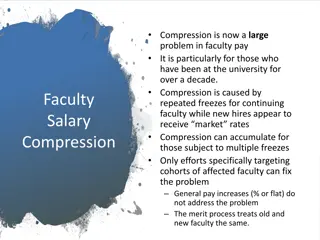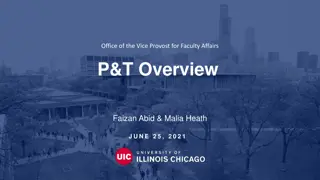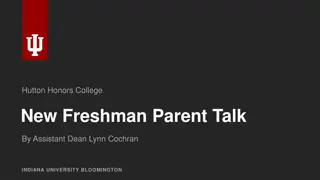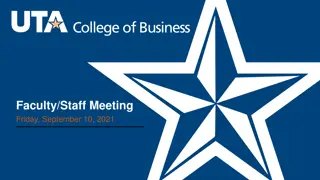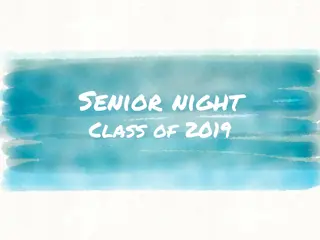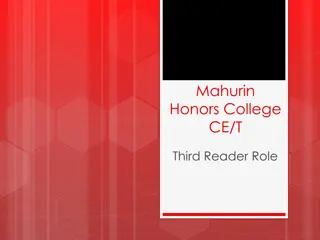
Transforming Classes into Honors Courses and Supervising Capstone Projects
Learn how to turn regular courses into honors-designated classes and oversee capstone projects in the book "Teaching in Honors." Discover the benefits of teaching honors students, suitable classes for honors designation, and program requirements. Explore why teaching honors can enhance your academic profile and attract majors/minors.
Download Presentation

Please find below an Image/Link to download the presentation.
The content on the website is provided AS IS for your information and personal use only. It may not be sold, licensed, or shared on other websites without obtaining consent from the author. If you encounter any issues during the download, it is possible that the publisher has removed the file from their server.
You are allowed to download the files provided on this website for personal or commercial use, subject to the condition that they are used lawfully. All files are the property of their respective owners.
The content on the website is provided AS IS for your information and personal use only. It may not be sold, licensed, or shared on other websites without obtaining consent from the author.
E N D
Presentation Transcript
Teaching in Honors: Transforming Your Classes into Honors-Designated Courses and Supervising Honors Capstone Projects Kelli Slunt and Mara Scanlon
Honors Program Academic Requirements HONR 101: Honors City as Text HONR 201: Honors Service Learning 12 credits of HN-designated coursework (may include FSEM) Capstone Project, at least 3 credits, usually an IS in major or minor field
Why do it for Honors? Honors students Represent a significant portion of our incoming class Are struggling to meet their basic requirements The Honors Program Ideally should not rest so heavily on lower-level classes Must be interdisciplinary to meet its goals
Why do it for you and your program? Honors students strengthen the profile of UMW: high achieving, high retention, high graduation rate Teaching Honors students opens opportunities for creative, highly engaged pedagogy Brass tacks: can help enrollment in your courses and may even recruit majors or minors
What classes might be appropriate for HN designation?
Regular and/or predictable offering Complete a major, gen ed, or ATC requirement Max 20-25 students Both upper & lower level Without pre-req, if possible
An Honors Course Is Is Not Open to any student who registers Section and instructor specific Grounded in teaching and learning that may be Active Student-driven Applied Differentiated Collaborative Dialogic Closed to students who aren t in Honors More work for the students or the faculty A non-HN course plus a major project A place for passive or one-directional learning Necessarily much different than what your best classes are already doing
From our webpage: objectives and outcomes https://academics.umw.edu/honorsprogram/ For program: For course:
What is the process for HN Designation?
University Process DEADLINE: usually week 3 of prior semester CIM Simultaneous process for new course and other designations
Honors Program Process https://academics.umw.edu/honorsprogram/ Overseen by Honors Program Faculty Advisory Committee
https://academics.umw.edu/honorsprogram/ Preview the CIM form
Honors Capstone Projects: what role do faculty play?
EVERY student who will graduate with University Honors must have this mentored experience Capstone Project minimum 3 credits of individual study (491, 492, or a comparable approved course) completed during the last year of study at UMW, and presentation of the research or creative project at the Honors Program Symposium (fall semester), Research and Creativity Day (spring semester), or another pre-approved comparable venue. The Honors Capstone Project typically is completed, and earns credit, in the student s major or minor; HONR 491 may be used for interdisciplinary projects or in disciplines that do not have an approved individual study course.
The Honors Capstone May overlap with a thesis or senior project required by the major or minor. May be used to earn departmental Honors if appropriate. Should in every way possible be self-directed. Is preceded in Honors by a Capstone Prep workshop. Is proposed in week 12 of the PRIOR semester. Is approved by the Honors Faculty Advisory Committee.
Questions and Consultations









